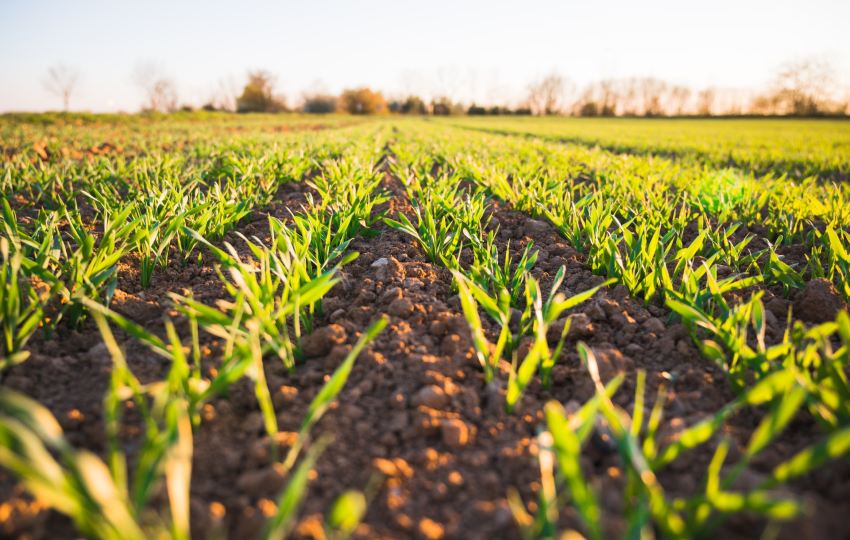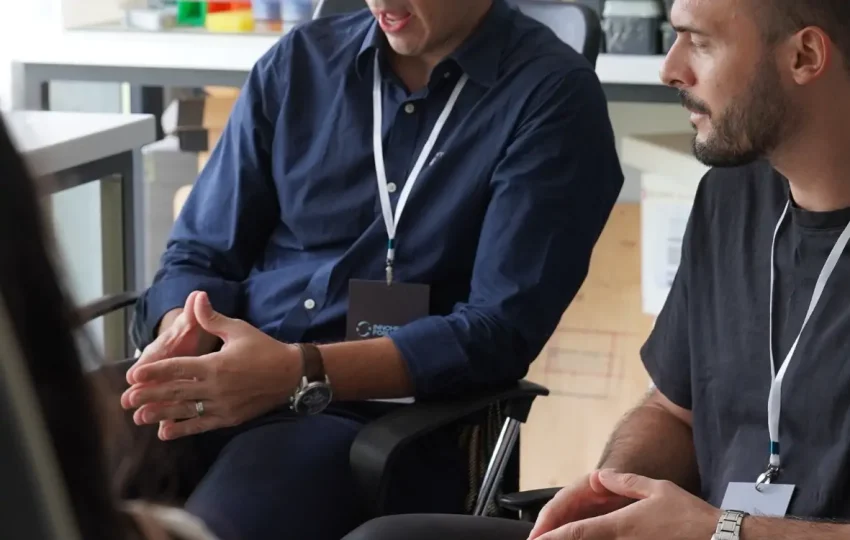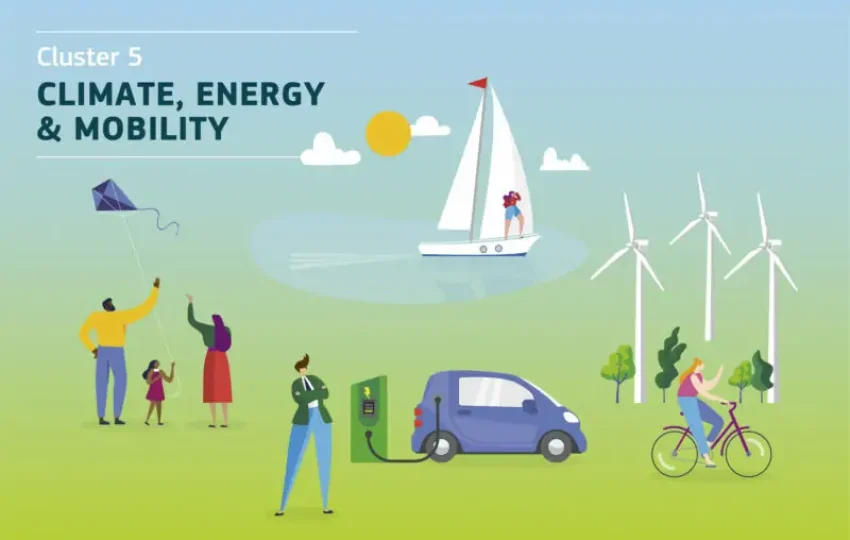The Russo-Ukrainian crisis is the perfect example of how a single occurrence can cause a global food crisis. Prices are going up, fueled further by high inflation. Food shortages can already be felt in Europe with imposed restrictions on the number of items you can purchase of staple foods like sunflower oil, flour etc.
With an increasing global population projected to reach almost 10 billion by 2050, the world needs more innovation in food production. Agriculture funding can bring help to bring innovative solutions to increase food production in a bid to slow down the rising prices and increase food availability.
However, besides food safety, agriculture funding also helps the twin transition by focusing on making Europe greener and more sustainable. Sustainability is one of the EU’s core priorities for the future, embodied in the European Green deal. Europe’s sustainability goals are supported through various EU funding programmes like Horizon Europe and the LIFE Programme.
This article brings you existing funding opportunities from various EU funding programmes relevant to the agriculture sector.
8 open calls for agriculture funding
Title: Improving food systems sustainability and soil health with food processing residues
Programme: Horizon Europe
Budget: € 7,000,000
Description: The predominantly linear economic models of food production are unstainable and heavily rely on finite and scarce resources, such as phosphorus and water. In spite of recent achievements in resource efficiency gain, the food production and processing industry still requires large volumes of clean water; while also contributing to the discharge of nutrients and organic matter into publicly owned streams and waterbodies. Those nutrients and organic matter can be valorised and used as soil improvers, instead of being wasted. Food systems actors need to recognise that the re-use of water and food by-products is key to achieve circularity in the industry and contribute to soil health.
Circularity is a key component of the European Green Deal, especially the Circular Economy Action Plan, the Farm to Fork and the Bioeconomy strategies, and the supporting FOOD 2030 research and innovation policy. Circularity will allow to reverse the trends of unsustainability and provides opportunities to transform by-products into valuable resources for soils, while taking into account the current legislation on animal by-products and fertilizers. An untapped opportunity lies in the valorisation of food waste streams containing nutrients and organic matter that can contribute to soil health, fertility and restoration while considering the food waste hierarchy. The food waste hierarchy focuses on prevention actions, followed by reuse and recycling pathways, and should guide the development of strategies that tackle food processing residues for soil improvement, when those residues cannot be used for other higher value uses (e.g., re-use for animal feed or use as by-products).
Deadline: 27/09/2022
Programme: Horizon Europe
Budget: € 10,000,000
Description: The sustainable mobilisation and valorisation of secondary resources can result in the creation of new economic and social opportunities in rural areas, while also protecting the environment and climate. Implementing these new opportunities needs the establishment of new bio-based systems, new business models and interactions between primary producers and other actors all the way to consumers, as well as ensuring circularity. However, individual farmers usually do not have the financial and technical capacity to invest in the necessary infrastructure or to provide a sufficient quantity and quality of these biological resources to make innovative valorisations economically viable.
Farmers’ cooperatives and producer organisations play an important role in helping farmers to capture a higher share of the value added in the supply chain, to strengthen their position on the market as well as in the areas of R&I, capacity building, and knowledge transfer.
This topic addresses cooperative business models among primary producers for the efficient conversion of agricultural residues, by-products, and waste into high-value bio-based materials and products with improved sustainability characteristics.
Deadline: 22/09/2022
Programme: Horizon Europe
Budget: € 20,000,000
Description: This topic relates to the Mission’s second objective, aiming to mobilise at least 150 regions in testing the solutions most locally needed to build climate resilience.
The proposal should develop and test innovative solutions, combining technological and social innovation, leading to an increase of the resilience and adaptation capacity to climate change in the involved regions and communities, assuring that nature based solutions are explored as priority and at the very heart of the development whenever possible.
In line with the Mission Implementation Plan and also with the new EU Climate Adaptation Strategy, implementing nature-based solutions on a larger scale would increase climate resilience. Blue-green (as opposed to grey) infrastructures represent multipurpose, “no regret” solutions, which simultaneously provide environmental, social and economic benefits and help build climate resilience. The Strategy also underlines that to improve their uptake, their benefits need to be better quantified and communicated. Their essential role for sustaining healthy water, oceans and soils was recognised, together with their potential to reduce costs, provide climate-resilient services, and improve compliance with Water Framework Directive requirement for good ecological status, if they were to play a bigger role in land-use management and infrastructure planning.
As climate impacts, adaptive capacities and disaster risk reduction capabilities differ greatly across regions, the proposed scientific development and innovation should address specific needs identified at regional and local scale with tailor-made responses and measures, fully acknowledging place-based governance, socio-economic and identity characteristics and other place-based data.
In line with the Mission objective to build systemic climate resilience, the proposal should address the multi-risks locally identified as climate vulnerability, addressing in a systemic approach one or more of the systems identified as key for climate resilience building in the Mission Implementation Plan Mission.
Deadline: 27/09/2022
Title: Improving food systems sustainability and soil health with food processing residues
Programme: Horizon Europe
Budget: € 7,000,000
Description: The predominantly linear economic models of food production are unstainable and heavily rely on finite and scarce resources, such as phosphorus and water. In spite of recent achievements in resource efficiency gain, the food production and processing industry still requires large volumes of clean water; while also contributing to the discharge of nutrients and organic matter into publicly owned streams and waterbodies. Those nutrients and organic matter can be valorised and used as soil improvers, instead of being wasted. Food systems actors need to recognise that the re-use of water and food by-products is key to achieve circularity in the industry and contribute to soil health.
Circularity is a key component of the European Green Deal, especially the Circular Economy Action Plan, the Farm to Fork and the Bioeconomy strategies, and the supporting FOOD 2030 research and innovation policy. Circularity will allow to reverse the trends of unsustainability and provides opportunities to transform by-products into valuable resources for soils, while taking into account the current legislation on animal by-products and fertilizers. An untapped opportunity lies in the valorisation of food waste streams containing nutrients and organic matter that can contribute to soil health, fertility and restoration while considering the food waste hierarchy. The food waste hierarchy focuses on prevention actions, followed by reuse and recycling pathways, and should guide the development of strategies that tackle food processing residues for soil improvement, when those residues cannot be used for other higher value uses (e.g., re-use for animal feed or use as by-products).
Deadline: 27/09/2022
Title: Monitoring, reporting and verification of soil carbon and greenhouse gases balance
Programme: Horizon Europe
Budget: € 7,000,000
Description: The success of carbon farming in Europe will be judged on the quantity and longevity of the sequestration of carbon in plants and soils (by enhancing carbon capture and/or reducing the release of carbon to the atmosphere). To upscale carbon farming successfully, and to establish long-term business perspectives, it will be essential to standardise methodologies and rules for monitoring, reporting and verifying (MRV) the gains or losses in the carbon sequestered. Currently, private schemes apply very different benchmarks and rules to the carbon credits placed on the voluntary markets. Without a high degree of transparency, environmental integrity, and methodology standardisation buyers will be hesitant about the quality of the offered carbon farming credits. Furthermore, land managers will find it difficult to estimate their potential revenues and policy makers will be reluctant to allow the use of such credits for compliance in the regulatory framework. In consequence, it will be challenging to develop a successful market.
Carbon accumulation and storage in soil and biomass is the result of the interaction of several biotic and abiotic factors. The development and use of biogeochemical models permits a better scientific understanding of soil response to specific or alternative management decisions, together with the impact of climatic variations.
It would be important to carry out complete balances of greenhouse gases (GHG), not only CO2, to verify that the increase in carbon storage or the decrease in CO2 emissions are not offset by an increase in emissions of other GHG (N2O for example). Interdependence of biogeochemical cycles should be considered, at minimum the coupling of C and N cycles.
Proposals should address various (as many as possible) types of the following land cover or land uses, particularly agricultural lands, in the EU and Associated Countries: agricultural croplands (both conventional and organic), grasslands and pasture land (both intensive, organic and semi-natural/low inputs rangelands), agroforestry and regenerative managed land, and paludiculture; forest lands (including afforested and deforested land); historical (drained, exploited) peatlands; managed wetlands; peri-urban areas subject to conversion.
Proposals should therefore look to a range (as wide as possible) of climatic/biogeographical regions in the EU and Associated Countries. Proposals should favour a landscape approach to their framing and analysis. In addition, proposals should address the largest geographical area possible.
Deadline: 27/09/2022
Title: Soil biodiversity and its contribution to ecosystem services
Programme: Horizon Europe
Budget: € 8,000,000
Description: Soils underpin the delivery of a range of ecosystem services which are essential for the environmental, social and economic wellbeing of people. Many of these services such as the production of biomass for food and other uses, removal of pollutants, support of above-ground biodiversity (e.g. farmland birds), provision of soil structure, nutrient cycling and carbon storage depend on the activities of a fascinating and complex network of soil organisms such as insects, invertebrates, bacterial and fungal organisms.
While our knowledge about individual components of soil biodiversity has significantly increased, the links between soil biodiversity, the multifunctionality of soils and the delivery of ecosystem services needs to be further explored. Furthermore, there is still a need to better understand the overall organisation of soil organisms (e.g. in terms of abundance, species richness, relationships of interdependence, evolution through time and community structure) and how pressures and drivers (including their interactions) resulting from different forms of land use and climate change affect the composition, functions, resilience and adaptation capacities of soil biota and their capacity to support multiple ecosystem services (ES).
Deadline: 27/09/2022
Title: Renewable energy incorporation in agriculture and forestry – HORIZON-CL5-2022-D3-02-07
Programme: Horizon Europe
Budget: € 7,500,000
Description:
Proposals should demonstrate incorporation of renewable energy technologies in agriculture or forestry to meet its electricity, heat, cold, waste and land management needs. Solutions should combine innovative renewable, circular and regional value chains from different renewables and adapted storage options to de-fossilize agricultural or forest processes trans-seasonally, taking into account hybridization compatibility. They should also address one of the two options:
- Transformation of agricultural or forest wastes to renewable energy carriers in situ, e.g. by modular slow pyrolysis units, using renewable energy for process energy needs. Solutions should improve the cost-effectiveness and the sustainability of agriculture or forest seasonal energy demand based on renewables.
- Development of renewable-based agricultural protocols for multiple and cover cropping and/ or mixed cropping which increase carbon sequestration and soil organic matter and reduce pesticides, combined with transformation to renewable energy carriers in situ, e.g. by biogas production, in a circular approach for soil nutrients and carbon. Positive effects on soil biodiversity/soil health and soil functionality as regards increasing soil organic matter, phosphorus and other nutrients and reducing the risk on groundwater contamination from nitrogen oxides should be assessed. Solutions should improve the cost-effectiveness and the sustainability (including biodiversity) of agricultural waste and land management through valorisation of wastes and secondary crops based on renewable energy technologies.
This topic requires the effective contribution of SSH disciplines and the involvement of SSH experts, institutions as well as the inclusion of relevant SSH expertise, in order to produce meaningful and significant effects enhancing the societal impact of the related research activities. The effective contribution of renewable energy and agronomy disciplines is also expected.
Deadline: 27/09/2022
Title: Birac Announces Call for Proposals Under Bionest Scheme
Description: Bio-incubation allows harnessing of the entrepreneurial potential of startups by providing access to infrastructure as well as mentoring and networking platforms.
Through BioNEST, BIRAC has supported 35 bio-incubators with the cumulative area of 3,91,849 sq. ft. The 35 bio-incubators are placed either within academic/ research clusters or stand-alone incubators either privately funded or funded by State Governments supporting innovation in Healthcare, Lifesciences, Vaccines, Diagnostics, Medical Devices, Drug Formulations and Delivery Systems, Industrial Biotechnology, Agriculture, Secondary Agriculture, Waste Management, Sanitation, Clean Energy and other related areas.
Objectives
- Provides incubation space to start-ups and entrepreneurs
- Connects industry & academia and enable interactions for efficient exchange of knowledge
- Provides technical and business mentorship
- Provides enabling services and required mentorship for IP, legal and technology management
- Provides investment opportunities, resource mobilization and networking platform
Deadline: 31/12/2022
Upgrade your plan for greater impact
You can find all the above agriculture funding on EUcalls. If you didn’t know it already, becoming an EUcalls member is free of charge. Our free plan allows our members to create their own business profiles, locate all the available calls for funding, and find and communicate with new partners.
On the other hand, our premium plans add many more benefits to being a free EUcalls member. For instance, your account will become eligible to make use of the personalized matching environment for calls and partners; you will have the unique opportunity to promote your organization on our blog and social media, to have your profile registered in the EU database, and to have priority participation in EU projects co-ordinated by our network.
If you want to step up your EU funding game, consider making EUcalls your ally to support you along the way. It will lead you to many more opportunities for greater impact.


